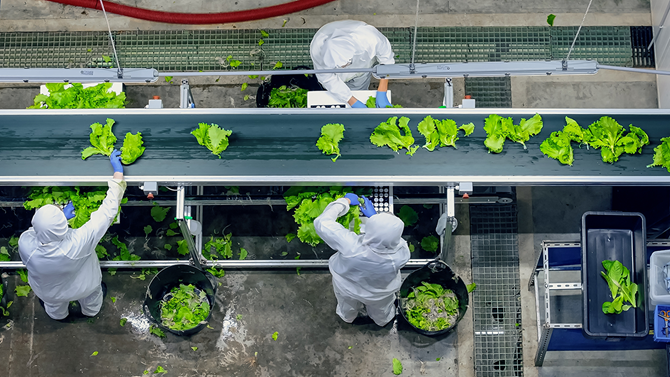Genetic analysis of resistance to detergents and industrial cleaning solutions in Listeria monocytogenes

- Project start date: 1 November 2003
- Project status: Completed
- Discipline: Microbiology and food hygiene
- Author/s: Dr Cormac Gahan, University College Cork
- Collaborator/s: Single supplier
Research objective
This research aimed to identify mutations in L. monocytogenes that reduce resistance to industrial cleaning agents and detergents, particularly in both planktonic and biofilm forms. Additionally, the study sought to explore whether resistance to detergents correlates with bile resistance, testing the hypothesis that industrial cleaning agents may inadvertently select for strains of L. monocytogenes that are resistant to both detergents and bile, thus contributing to persistent contamination in food-processing environments.
Research report
- Title: Unpublished report. See below for peer reviewed article.
- Date: 5 October 2008
- Summary: This research investigated how Listeria monocytogenes responds to surfactant and detergent stress, with a particular focus on the role of Sigma B, an alternative sigma factor. The study used both wild-type Listeria monocytogenes 10403S and a Delta-sigB mutant strain to assess the impact of surfactants (BC, CPC, and SDS) on bacterial viability and growth. Methods included lethality assays, growth analysis, and transcriptional analysis via reverse transcriptase-PCR to measure Sigma B induction.
- Findings:
- The Delta-sigB mutant showed a significant 1-2 log decrease in viability compared to the wild type under lethal levels of BC, CPC, and SDS.
- Sigma B was induced by sublethal levels of surfactants, indicating a response mechanism to detergent stress.
- Despite Sigma B induction, it did not significantly affect the growth of Listeria monocytogenes under sublethal levels of surfactants.
- Recommendations:
- Sigma B plays a critical role in the resistance of Listeria monocytogenes to high levels of surfactants, suggesting that targeting Sigma B-regulated pathways could enhance the effectiveness of cleaning agents.
- Further research should explore how Sigma B-mediated resistance to sublethal levels of surfactants might contribute to overall stress resilience and potential food-processing associated stresses.
- Development of novel cleaning agents that can effectively disrupt Sigma B-regulated mechanisms could be considered to improve food safety and reduce pathogen persistence in food-processing environments.
Other outputs
Peer reviewed paper
Ryan E, Gahan CGM and C Hill. 2008. A significant role for Sigma B in the detergent stress response of Listeria monocytogenes. Letters in Applied Microbiology. 46(2):148-54




